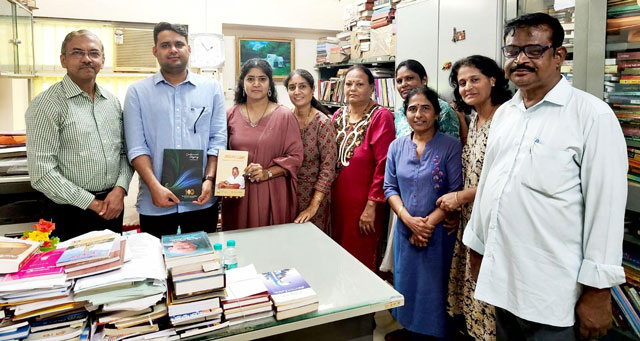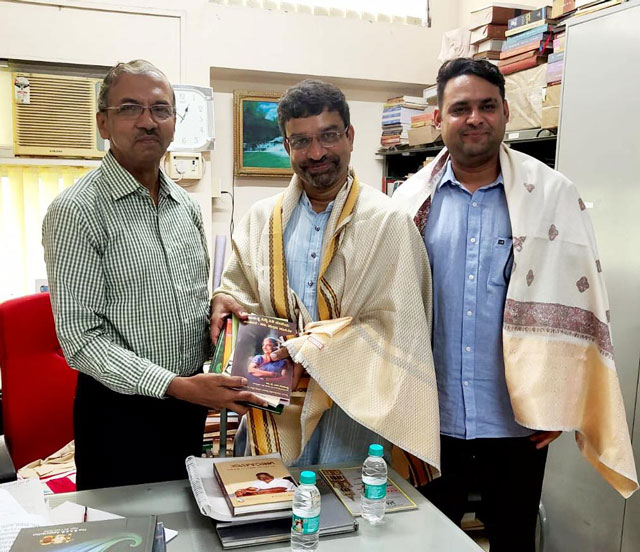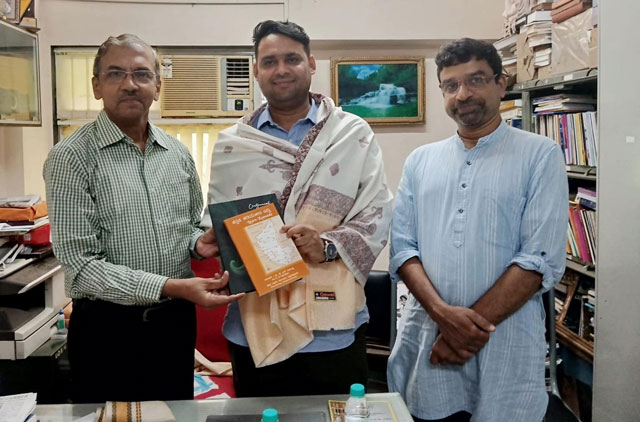Rons Bantwal
Mumbai, Jul 17: Once pushed to the fringes of society and labelled untouchables by the upper castes, the Billava community has risen to prominence—thanks in large part to the transformative influence of philosopher Narayana Guru, said Dr Mukesh Kumar, assistant professor and researcher at the University of Zurich, Switzerland.
Speaking at a special dialogue hosted by the Kannada department of Mumbai University on Monday, July 14, Dr Kumar noted that the Billavas, despite systemic discrimination, drew strength from a deep cultural legacy and Narayana Guru’s teachings to fight their way to dignity and recognition.



“The Billavas, who were once marginalised, achieved upliftment through the philosophical guidance of Narayana Guru,” Dr Kumar told attendees. “I’ve been studying Basel mission reports and have found great interest in tracing the community’s journey. For the past three years, I’ve made frequent visits to Mangaluru. My research centres on how this suppressed group drew inspiration and achieved progress.”
Dr Kumar, who focuses on caste, religion, and social mobility, said the community’s strides over the last century were remarkable. “Narayana Guru’s role as a progressive thinker was crucial,” he added. “Over the last month and a half, I’ve been closely examining the Billavas’ contributions in Mumbai. I thank the Kannada department for the chance to share my findings. Their academic work is vital in engaging with community narratives.”
Joining the session as a guest speaker, Dr Prithviraj Kavattaru, assistant professor at Manipal’s MAHE University, praised the department’s outreach: “Mumbai University’s Kannada Department has long been active in organising thoughtful academic events. While academia is often seen as detached from society, Professor Upadhya has integrated scholarship and community seamlessly. Among Kannada departments nationwide, this one stands out for its energy and commitment.”
Presiding over the session, Prof G N Upadhya, head of the department, said: “Research is an ongoing process. It’s essential to track how communities evolve and reassess their value over time. Dr Mukesh Kumar’s effort to document a century of Billava history using verifiable records on an international platform is noteworthy. His passion for research is something the younger generation should emulate.”
Prof Upadhya also highlighted that Dr G P Kusuma has previously studied the Mogaveera migration to Mumbai, while Anita Poojari is currently researching the Billava community’s success stories in the city. “These subaltern groups have achieved so much in Mumbai—without quotas or institutional support. Their journey is an inspiration. The Kannada Department has taken the lead in recording these efforts,” he said. “We’re proud that Dr Mukesh Kumar approached us for his research.”
Dr Kavattaru added: “We must not sideline our cultural roots. History isn’t just the past—it includes the unfolding present. It’s our duty to document it.”
As part of the event, Dr Mukesh Kumar and Dr Prithviraj Kavattaru were honoured with shawls and ceremonial book gifts by the university. The department also felicitated noted Bhagavathas Vasudeva Ermal and Delanta Majalu Subrahmanya Bhatt for their contributions.
In a warm welcome, new PhD entrant Savita Arun Shetty was greeted with a floral tribute. Among those present at the event were Surekha Devadiga, Karunakar Kapu, Asha Suvarna, Dayashashi, and Usha Shetty.
The programme was compered by research scholar Pratibha Rao, and the vote of thanks was delivered by Anita Poojary.